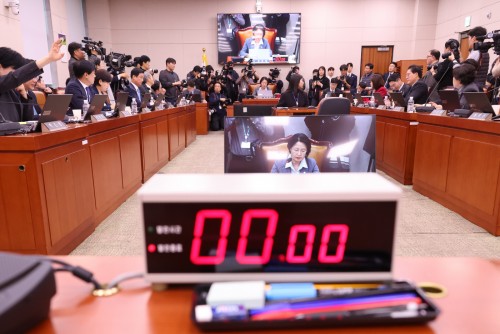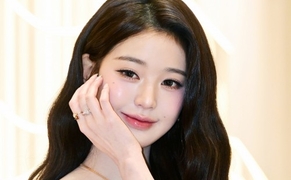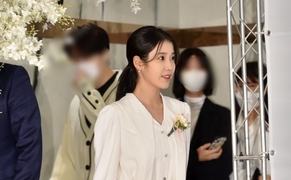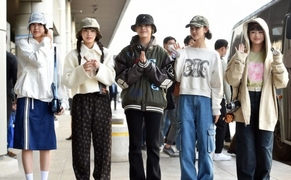 |
| A plenary session of the Legislation and Judiciary Committee is being held at the National Assembly in Yeouido, Seoul, on November 11. The meeting continued without Justice Minister Chung Sung-ho, who was absent despite the PPP’s demand for his attendance to address the controversy over the prosecution’s decision to drop its appeal in the Daejang-dong case. / Source: Yonhap News |
The political storm surrounding the prosecution’s decision to drop its appeal in the Daejang-dong development case is widening, with both ruling and opposition parties escalating their confrontation.
The People Power Party (PPP) argues that the move was influenced by “pressure from higher authorities” to protect the president, calling for a parliamentary investigation and the appointment of a special counsel.
The Democratic Party of Korea (DPK), meanwhile, frames the controversy as an act of “organized defiance” by pro-Yoon prosecutors, using it to strengthen its case for prosecution reform.
On Monday, the PPP held an emergency protest in front of the Justice Ministry in Gwacheon, denouncing the decision as the “burial of judicial justice.”
Floor leader Song Eon-seok said, “The essence of this case is simple—someone exerted pressure to make the prosecution drop the appeal,” adding that the decision showed “clear signs of intervention from those above Minister Chung Sung-ho.”
PPP leader Jang Dong-hyuk told reporters after the protest that the incident amounted to “the Chung Sung-ho Gate that led to the No Man-seok rebellion,” warning that the party would seek impeachment of those responsible if they refused to resign. Senior party member Shin Dong-wook declared, “History will remember this as the beginning of the downfall of the Lee Jae-myung administration.”
PPP spokesman Kwak Kyu-taek added that it was difficult to believe the case ended with simple information sharing, noting that “investigations typically move up the chain—from district prosecutors to the Supreme Prosecutors’ Office, the Justice Ministry, and finally the presidential office.”
He claimed that “three of the four secretaries at the presidential office’s civil affairs office, the Justice Minister’s policy aide, the head of the Legislative Office, and even the NIS planning chief are all former defense lawyers for President Lee Jae-myung.”
The Democratic Party, on the other hand, dismissed the allegations as politically motivated, calling the prosecutors’ move a “rebellion within the prosecution” after their “manipulated investigation” failed to hold up in court.
DPK spokesperson Kim Hyun-jung stated, “The defendants are private developers Yoo Dong-gyu, Kim Man-bae, and Nam Wook—not President Lee Jae-myung,” accusing former PPP leader Han Dong-hoon of spreading “false claims” that the president intervened in a case involving his alleged accomplices.
The DPK also signaled it would use the case to push forward with long-stalled prosecution reform measures.
Representative Seo Young-kyo said in a radio interview, “Now is the time for prosecutors to reflect on their actions, not stage collective resistance. This is a mutiny.”
Floor leader Kim Byung-ki added, “We will show that the Lee Jae-myung government and the Democratic Party are not the same as the old Democratic Party you remember.”
DPK lawmaker Park Ju-min emphasized that accusations of “higher-level interference” require evidence. “Acting Prosecutor General Noh Man-seok said he sought opinions rather than received orders, and Minister Chung Sung-ho confirmed that interpretation,” Park said. “Their statements align, so there’s unlikely to be anything more behind it.”
Most Read
-
1
-
2
-
3
-
4
-
5
-
6
-
7





















